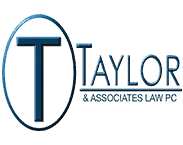What Does a Power of Attorney Cover?
What Does a Power of Attorney Cover?
A Power of Attorney (POA) is an essential legal document that allows someone to make decisions on your behalf when you’re unable to do so. It provides peace of mind, ensuring that personal, financial, or legal matters can be handled by someone you trust. Whether you’re planning for the future or dealing with a current need, understanding what a Power of Attorney covers is crucial. In this post, we’ll explore the different types of Power of Attorney and the scope of authority they grant to an appointed agent.
What is a Power of Attorney?
A Power of Attorney is a legal document in which one person (the principal) grants another person (the agent or attorney-in-fact) the power to act on their behalf. This authority can be as broad or as limited as the principal desires, depending on the type of POA they create. A Power of Attorney can cover a wide range of legal, financial, and medical decisions, making it a versatile tool for managing one's affairs.
Types of Power of Attorney
There are several different types of Power of Attorney, each serving a distinct purpose:
A General Power of Attorney grants the agent broad powers to handle most matters related to the principal’s finances, legal dealings, and property. A Durable Power of Attorney remains in effect even if the principal becomes incapacitated, ensuring continuity of decision-making when the individual is unable to manage their affairs. A Medical Power of Attorney authorizes an agent to make healthcare decisions for the principal if they are unable to make these decisions themselves due to illness or incapacity. A Limited Power of Attorney gives the agent specific, defined powers for a certain period of time, such as handling a real estate transaction or managing a particular business deal.
What Does a Power of Attorney Cover?
The specific coverage of a Power of Attorney can vary greatly depending on the type of POA established. However, a POA can address areas such as financial decisions, legal affairs, healthcare decisions, and property management. It allows the agent to manage bank accounts, pay bills, and handle investments, represent the principal in legal matters, make medical decisions or authorize treatment when the principal cannot, and oversee real estate transactions or property management. Each area of authority should be clearly defined in the POA document to avoid confusion and potential conflicts.
Why a Power of Attorney is Important
A Power of Attorney is a critical tool for ensuring that your financial, medical, and legal matters are handled smoothly, especially if you cannot do so yourself. Having a trusted individual appointed as your agent can help avoid complications due to illness, aging, or other circumstances. A POA also helps ensure that your wishes are followed when you cannot express them personally.
A Power of Attorney is a vital legal document that ensures your affairs are in capable hands if you're ever unable to manage them yourself. Understanding the types of POA and what they cover can provide clarity and peace of mind for you and your loved ones. The attorneys at Taylor & Associates Law, P.C. are ready to help you create a comprehensive Power of Attorney and offer legal support when needed.











